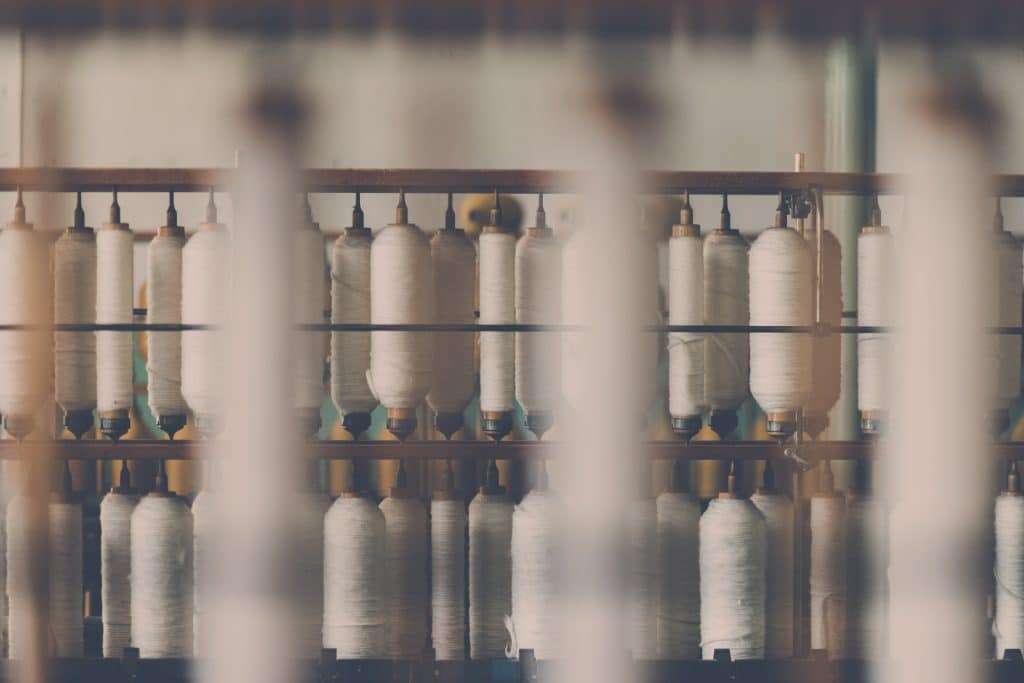Building on its ongoing sustainability efforts, U.S. fashion label Ralph Lauren has announced an industry first with its sustainable cotton polo.
Marketed as the world’s first high-performance sustainable cotton polo shirt, Ralph Lauren is debuting its RLX CLARUS shirt at the 2022 Australian Open next week.
Over the course of the Australian Open, Ralph Lauren will host an exhibition tennis clinic with tennis legend Sam Groth, and professional Australian football player Josh Cavallo. The athletes will be wearing the new shirts.
“I’ve been a longtime fan of Ralph Lauren—they’re a classic brand with incredible style and are always pushing boundaries to make really innovative, new products,” Cavallo says. “As a professional athlete who trains every day, it’s incredible to be able to wear a 100 percent cotton shirt that is stylish, has superior performance qualities and keeps me comfortable even on the hottest of days—all made with a sustainable spirit.”
The RLX CLARUS
“Ralph Lauren is known for timelessness—and for more than 50 years being timeless has meant both leaning into our heritage and fostering pioneering innovation,” David Lauren, chief branding and innovation officer at Ralph Lauren said in a statement.
“With the introduction of the RLX CLARUS Polo Shirt, we are using our most iconic product as a canvas to launch an industry-changing and scalable textile technology—a high-performance apparel product that is created with natural fibers for the first time. We’re proud to build on the brand’s legacy of signature and authentic style, reinvented for the future.”
According to Ralph Lauren, the shirt is made with a first-to-market patented platform that transforms virgin and recycled cotton, allowing the cotton fibers to take on high-performance attributes such as moisture-wicking and quick-drying.
The resulting material performs similarly to plastic-based synthetic fabrics like polyester and nylon, the company says. Those materials use petroleum-based fossil fuels to achieve their performance benefits.

Ralph Lauren partnered with Natural Fiber Welding, Inc., a sustainable material science startup. It became a minority partner in the startup in 2020.
“We are thrilled to continue our partnership with Ralph Lauren. Through this collaboration, we are paving the way for complete circularity with resulting materials that perform similarly to plastic-based synthetic fabrics,” said Luke Haverhals, CEO at NFW. “We are pioneering an entirely new system that simultaneously enables all-natural performance fabrics while reducing waste and eliminating the need for synthetic plastics.”
The move builds on the brand’s efforts to become a leader in circular fashion. Last year, it announced another industry first, Color on Demand. The zero wastewater cotton dyeing system follows a similar model to print on demand. Ralph Lauren plans to bring the technology to its flagship Manhattan store. It has shared the technology in an effort to boost sustainability across the fashion industry.
The process reduces water usage by 40 percent, decreases chemicals by 85 percent, and uses 90 percent less energy than traditional dying. This means a decrease in overall carbon footprint of 60 percent.
Through a partnership with the World Wildlife Foundation, announced last summer, Ralph Lauren says it will reduce its overall water usage by 20 percent by 2025. It says all hazardous chemicals will be eliminated by 2025.
Recycled cotton
As an investment partner in Natural Fiber Welding, Ralph Lauren is aiming to expand its use of recycled cotton so that 100 percent of materials, including cotton, is sustainable, also by the 2025 target.
Cotton is an inherently problematic fiber. It’s preferred because it’s natural and versatile, but as a crop, it’s one of the most complicated. Cotton requires more water than nearly any other crop, and it also can be reliant on agrochemicals, such as the toxic weedkiller glyphosate.
India grows most of the world’s cotton. Eighty-five percent of the nation’s farmers operate on fewer than five acres. Poverty is rampant, as are the suicide rates. Since the mid-1990s, more than 300,000 Indian farmers have died by suicide.

The high suicide rates were largely thought to be tied to the introduction of genetically modified crops, specifically cotton. Thousands of farmers entered into seed contracts with biotech giant Monsanto (now Bayer). This genetically modified cotton—modified to withstand heavy application’s of Bayer’s glyphosate-based Roundup herbicide, now makes up more than 90 percent of the country’s cotton production.
Shifting to a circular production model that favors recycled cotton would mean fewer chemicals and fundamental shifts to the cotton industry. Ralph Lauren says its goal is to replace all non-biodegradable materials as it scales its recycled cotton production.
Sustainability commitments at Ralph Lauren were also the impetus behind The Earth Polo, which was made entirely from recycled plastic bottles. Those shirts were dyed with a process that required no water. The brand also recently launched The Lauren Look, a subscription apparel rental initiative aimed at reducing purchases and expanding the lifespan of items.


